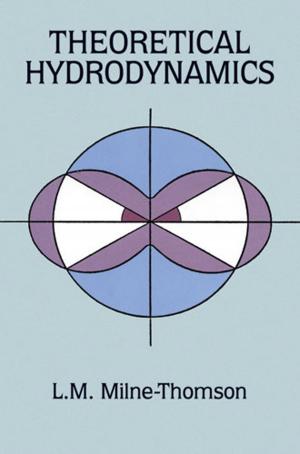Higher Geometry
An Introduction to Advanced Methods in Analytic Geometry
Nonfiction, Science & Nature, Mathematics, Geometry| Author: | Frederick S. Woods | ISBN: | 9780486159560 |
| Publisher: | Dover Publications | Publication: | October 29, 2013 |
| Imprint: | Dover Publications | Language: | English |
| Author: | Frederick S. Woods |
| ISBN: | 9780486159560 |
| Publisher: | Dover Publications |
| Publication: | October 29, 2013 |
| Imprint: | Dover Publications |
| Language: | English |
For students of mathematics with a sound background in analytic geometry and some knowledge of determinants, this volume has long been among the best available expositions of advanced work on projective and algebraic geometry. Developed from Professor Woods' lectures at the Massachusetts Institute of Technology, it bridges the gap between intermediate studies in the field and highly specialized works.
With exceptional thoroughness, it presents the most important general concepts and methods of advanced algebraic geometry (as distinguished from differential geometry). It offers a thorough study of one-, two-, three-, and four-dimensional coordinated systems, the concepts they entail, and their associated geometrical elements. This study culminates with a discussion of n-dimensional geometry in an abstract sense, of which the earlier subjects form concrete illustrations.
As each system of coordinates is introduced, the meaning of the linear and quadratic equations is studied, with principal emphasis on the interpretation of equations as well as on a knowledge of useful geometrical facts. The principle of duality is kept at the forefront, and the nature of imaginary elements and the conventional character of the locus of infinity, dependent upon the type of coordinates used, are carefully explained.
With exceptional thoroughness, it presents the most important general concepts and methods of advanced algebraic geometry (as distinguished from differential geometry). It offers a thorough study of one-, two-, three-, and four-dimensional coordinated systems, the concepts they entail, and their associated geometrical elements. This study culminates with a discussion of n-dimensional geometry in an abstract sense, of which the earlier subjects form concrete illustrations.
As each system of coordinates is introduced, the meaning of the linear and quadratic equations is studied, with principal emphasis on the interpretation of equations as well as on a knowledge of useful geometrical facts. The principle of duality is kept at the forefront, and the nature of imaginary elements and the conventional character of the locus of infinity, dependent upon the type of coordinates used, are carefully explained.
For students of mathematics with a sound background in analytic geometry and some knowledge of determinants, this volume has long been among the best available expositions of advanced work on projective and algebraic geometry. Developed from Professor Woods' lectures at the Massachusetts Institute of Technology, it bridges the gap between intermediate studies in the field and highly specialized works.
With exceptional thoroughness, it presents the most important general concepts and methods of advanced algebraic geometry (as distinguished from differential geometry). It offers a thorough study of one-, two-, three-, and four-dimensional coordinated systems, the concepts they entail, and their associated geometrical elements. This study culminates with a discussion of n-dimensional geometry in an abstract sense, of which the earlier subjects form concrete illustrations.
As each system of coordinates is introduced, the meaning of the linear and quadratic equations is studied, with principal emphasis on the interpretation of equations as well as on a knowledge of useful geometrical facts. The principle of duality is kept at the forefront, and the nature of imaginary elements and the conventional character of the locus of infinity, dependent upon the type of coordinates used, are carefully explained.
With exceptional thoroughness, it presents the most important general concepts and methods of advanced algebraic geometry (as distinguished from differential geometry). It offers a thorough study of one-, two-, three-, and four-dimensional coordinated systems, the concepts they entail, and their associated geometrical elements. This study culminates with a discussion of n-dimensional geometry in an abstract sense, of which the earlier subjects form concrete illustrations.
As each system of coordinates is introduced, the meaning of the linear and quadratic equations is studied, with principal emphasis on the interpretation of equations as well as on a knowledge of useful geometrical facts. The principle of duality is kept at the forefront, and the nature of imaginary elements and the conventional character of the locus of infinity, dependent upon the type of coordinates used, are carefully explained.















